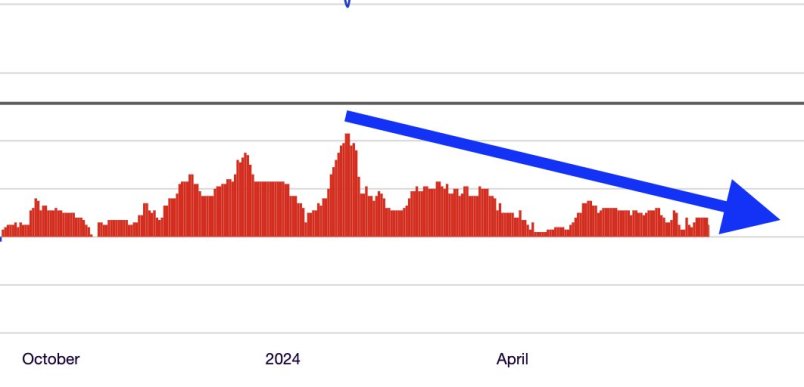Yesterday I opened my inbox to an Axios email with the subject line: “Dems Fear Biden Loss.” Needless to say, versions of this story have become almost a stock piece of the 2024 campaign. And, look, I fear a Biden loss as well. He could totally lose and that would be really, really bad. But I got the sense that the import of this item was a bit more totalizing than that. And well … I was right. The item presents a picture of a campaign cocooned from outside input, intolerant of dissenters who aren’t confident of a win and largely the work of Biden and top advisor Mike Donilon, who is portrayed as having a strategy that is little more than a preciously naive hope that in the end voters will “do the right thing.”
But the heart of the piece comes at the top with a quote (emphasis added) from someone described as a “Democratic strategist in touch with the campaign.”
“It is unclear to many of us watching from the outside whether the president and his core team realize how dire the situation is right now, and whether they even have a plan to fix it. That is scary.”
I spend a lot of time trying to avoid the twin perils of wallowing pessimism and empty optimism. But when I read this, I at first literally checked to see whether I had done a search of my email that had served up an Axios newsletter from last January. (Literally not kidding about this.) We’ve been reading about these fearful strategists for months.
Purely at a definitional level I don’t get how a tie race can be “dire.” How is that possible, even by the dictionary? Scary, yes. Not ideal, absolutely. But a tie can’t be “dire.” That’s just not what dire means.
Then yesterday evening a new Fox poll came out which showed Biden up by two points nationally. That’s a three point swing since May and a seven point swing since March. Perhaps it was just poor timing for Axios. But there’s something more going on here.
I was actually less surprised and impressed by the Fox poll than most people. After all, it’s just one poll. And that applies just as much for “good” poll results as “bad” ones. But there’s also been a slow but clear trend in Biden’s direction since the beginning of the year. So this wasn’t a huge surprise. Indeed, there’ve been a number of polls with Biden one or two points ahead. They just don’t tend to be the ones that garner lots of press attention, like the Times-Siena poll and the Fox poll.
The RCP average is often squirrelly, because it can give a pretty obvious preference to GOP-aligned ringer polls. But even their trendline is clear. (I use it here but they have a clearer trendline chart going back to the Fall.) This is since the peak back in January with my highly methodologically sound blue arrow added for clarity.

(This will be the paragraph where I throw in all the caveats. Skip to the next one if you don’t need that.) Now, ties are 50-50 things. I’m not presenting this as great news. The 538 forecast has bobbled around 50-50 for the last week. Today it’s Trump wins 50 times out of a 100 simulations, Biden 49. It keeps going back and forth day to day. But of course one or two points of probability either way is basically meaningless.
I have no doubt that if we’re back here in mid-November and Biden lost some of you will be saying, “Well, what do you have to say for yourself now, Josh.” And I think my answer will be “I mean, he lost. It was close but he lost. And that sucks. I never promised he would win.”
But I keep coming back to “dire.” There’s something legitimately clinical going on here. Some of it is DC journalists being attached to a narrative, one they’re invested in for various reasons. But Democrats and “Democratic strategists” play a role here too, whether or not they have the initials D and A. I’ve made my argument at some length that runaway pessimism has real world campaign impacts, in addition to simply being an Eeyore-ly and undignified way to live life. But there is some disconnect here that is worth understanding, worth taking a hard look at quite apart from its potential negative impacts on the election outcome. I wish I could give a good explanation for it beyond the inherent GOP tilt of most national political press coverage and intrinsic Democratic worry-wart-ism, both of which are certainly playing a role. But I can’t. For now I can only point to it as a standout example of the way that certain press and political narratives can remain curiously immune to actual evidence.




